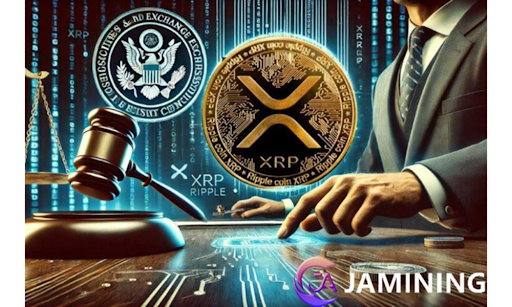Chainlink And Mastercard Enable Direct On-Chain Cryptocurrency Purchases

Chainlink announced a partnership with Mastercard on June 24, 2025, that allows over 3 billion cardholders worldwide to purchase cryptocurrencies directly on-chain. According to CoinSpot, the collaboration connects traditional payment infrastructure with decentralized finance through a new platform called Swapper Finance. The integration enables users to buy digital assets directly from decentralized exchanges using standard Mastercard payment methods.
The partnership includes multiple infrastructure providers working together to create seamless transactions. Mastercard reports that Shift4 Payments handles card processing, while zerohash provides compliance and custody services. XSwap executes token swaps on decentralized exchanges like Uniswap through Chainlink's interoperability protocol.
CoinDesk confirmed that this represents the first time a major payments network has enabled direct-to-DEX swaps at scale. The system allows users to convert fiat currency into cryptocurrencies without traditional exchange intermediaries.
Market Response And Token Performance
LINK token prices surged following the partnership announcement, with CryptoSlate reporting a 14% increase within 24 hours. The price movement reflected investor optimism about real-world cryptocurrency adoption and mainstream integration possibilities.
Trading volumes accompanied the price surge, though CoinDesk noted that LINK faced some resistance at the $13.73 level after initial gains. The token's performance occurred during a broader cryptocurrency market recovery following geopolitical tensions in the Middle East.
Market analysts view the partnership as validation of Chainlink's real-world utility beyond oracle services. The integration demonstrates how blockchain technology can bridge traditional finance with decentralized systems through established payment networks.
Industry Context And Payment Evolution
Cryptocurrency payment adoption has accelerated significantly in 2025, with Security.org research showing that approximately 28% of American adults now own cryptocurrencies. This represents nearly double the ownership rate from late 2021, indicating growing mainstream acceptance.
Traditional financial institutions have increasingly embraced digital assets throughout 2024 and 2025. Elliptic research found that 44% of financial institutions are now willing to offer bank accounts to crypto businesses, while regulatory clarity has encouraged 46% of institutions to advance their digital asset strategies.
Payment infrastructure developments have gained momentum as regulatory frameworks become clearer. The Trump administration's crypto-friendly policies have created regulatory certainty that financial institutions needed to move forward with blockchain initiatives, according to industry observers.
Broader Implications For Cryptocurrency Markets
The Mastercard-Chainlink collaboration represents a significant step toward mainstream cryptocurrency adoption by removing technical barriers that have prevented regular users from accessing on-chain economies. The partnership addresses long-standing challenges including wallet setup complexity, on-ramp limitations, and user interface difficulties.
Industry experts believe this type of traditional finance integration could accelerate institutional adoption of cryptocurrencies as investment-grade assets. Emarketer projects that cryptocurrency payment usage will surge 82.1% over the next two years, driven by regulatory changes and payment provider expansion.
However, challenges remain for widespread adoption. Security concerns persist, with Cointelegraph noting that regulatory frameworks are still evolving across different jurisdictions. Risk management frameworks for digital assets require further development before institutions can fully embrace blockchain-based financial products.
The partnership also highlights the growing convergence between traditional financial infrastructure and decentralized systems. As more payment networks explore blockchain integration, the distinction between conventional banking and cryptocurrency services may continue to blur throughout 2025.
Related Reading on DAO Times
For readers interested in exploring the broader ecosystem of decentralized autonomous organization tools that complement these payment infrastructure developments, DAO Times offers a comprehensive guide to DAO tooling. This resource provides detailed analysis of governance platforms, treasury management solutions, and collaboration tools that organizations use to operate in decentralized environments. The guide covers both technical infrastructure and practical implementation strategies that complement the payment innovations described in this Chainlink-Mastercard partnership, offering readers insight into how decentralized organizations manage operations and financial transactions in the emerging Web3 economy.





